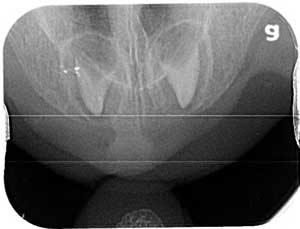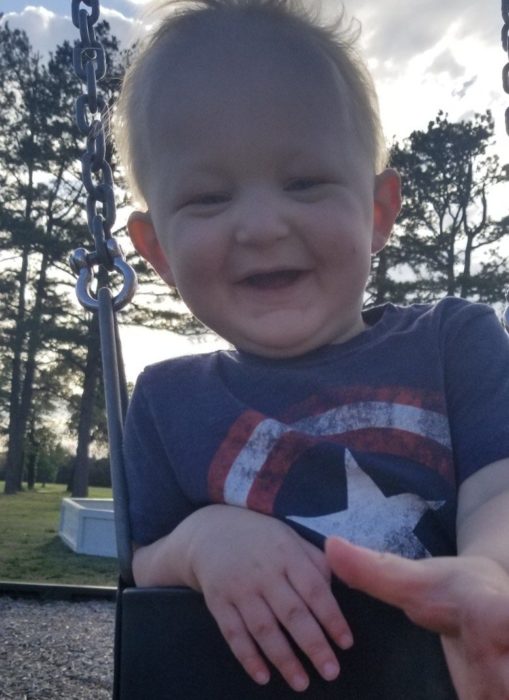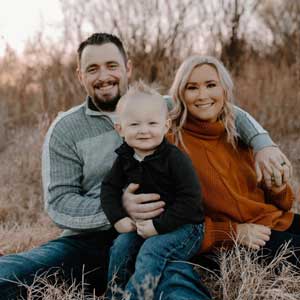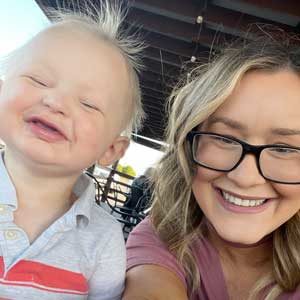By Alicia Carter
In June of 2019, we welcomed our baby boy, Asher, into the world. He is a happy, healthy, and growing boy with a HUGE personality.

However, Asher wasn’t showing signs of teeth development. Dental x-rays confirm that he has two upper teeth that have not ruptured, and those tooth buds are conical in shape. He has no other tooth buds present. Our little blonde boy also has sparse hair, eczema flare ups, and he can’t produce sweat from his neck up. All classical signs of hypohidrotic ectodermal dysplasia (HED).
Ectodermal dysplasia does seem to run in our family. My dad, uncle and great uncles all have some form of it. In fact, my older sister and I both had missing teeth and have required several dental implants.

Asher’s symptoms and our family medical history led us to suspect that he has x-linked HED (XLHED), which we have learned is the most common form of ectodermal dysplasias. Genetic testing conducted last summer has confirmed our suspicions. Asher does have XLHED.
Asher is healthy. He is ornery, outspoken and loving—this genetic syndrome does not define him. I have no doubt that he will handle any challenges that come his way with grace and positivity.
We are now pregnant with fraternal twins and just found out we will be having two boys! I am a little worried that they might be affected by XLHED also, but I wouldn’t say that impacted our decision to have more children. We definitely worry about the financial cost of treatment for all of the boys, if it is needed. But, as a family, we will face the challenges as they come.

We hope to continue to connect with others in the NFED family—especially parents who are local and have gone through this themselves and/or with their child.
The limited amount of research out there is very discouraging. But, we love the National Foundation of Ectodermal Dysplasias (NFED) because of the information they share. How you continue to raise awareness about ectodermal dysplasias encourages me to continue to share my son’s story with others to also bring awareness!
Alicia Carter is a guest blogger for the National Foundation for Ectodermal Dysplasias. Her son, Asher, is affected by XLHED. She and her husband, Joshua, live in Oklahoma.

Is there a way to get financial help
to cover dental cost of children missing teeth because of ectodermal
dysplasia?
Hi, Kim, please contact Kelley at Kelley@nfed.org for guidance. Have a great day!